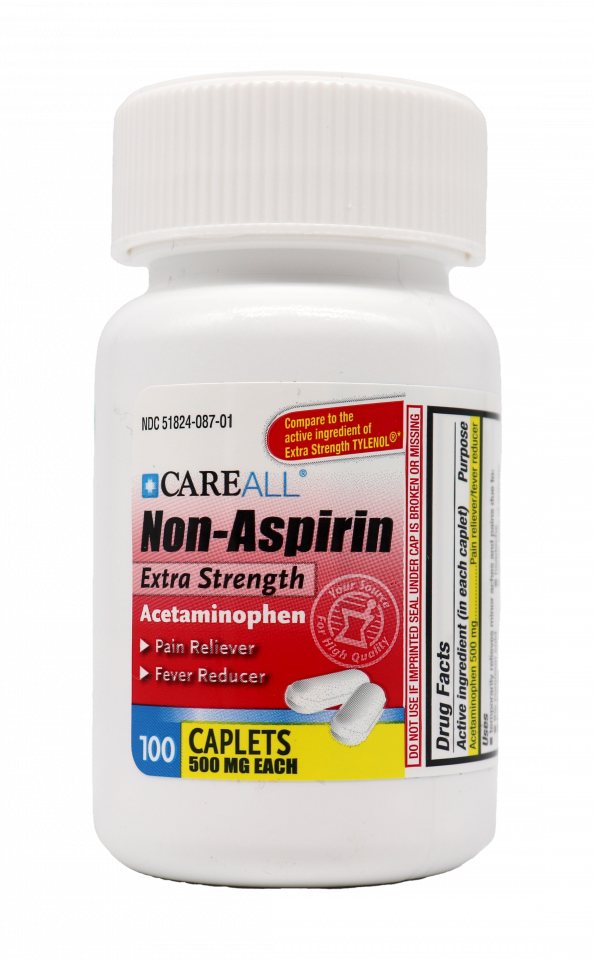When you or your child has a headache, fever, or muscle ache, it’s easy to reach into the medicine cabinet for pain relief. But should you grab ibuprofen or acetaminophen? While both medications treat similar symptoms, they work differently in the body and are better suited for different conditions. Understanding the difference can help you make the safest and most effective choice.
In this post, we’ll explore how ibuprofen and acetaminophen compare, when to choose each one, and which health conditions or symptoms might make one option safer than the other.
How They Work: Key Differences Between Ibuprofen and Acetaminophen
Acetaminophen (commonly known by the brand name Tylenol) is a pain reliever and fever reducer. It belongs to a class of drugs called analgesics and antipyretics. Acetaminophen works by blocking certain chemical messengers in the brain that signal pain and help regulate body temperature.
Ibuprofen (brand names include Advil and Motrin) is a nonsteroidal anti-inflammatory drug (NSAID). Like acetaminophen, it reduces pain and fever, but it also reduces inflammation. Ibuprofen blocks enzymes (COX-1 and COX-2) that produce prostaglandins, substances that promote inflammation, pain, and fever.
When to Choose Acetaminophen
Acetaminophen is often a go-to choice for:
- Fever relief in children and adults
- Headaches and migraines
- General aches and pains without swelling
- Sore throat pain
- People with sensitive stomachs or a history of ulcers
- Pregnant individuals, under medical guidance

Acetaminophen is generally easier on the stomach and has fewer gastrointestinal side effects than ibuprofen. It is also less likely to raise blood pressure or cause issues in people with heart disease. However, it is processed by the liver, so high doses or frequent use can lead to liver damage. Never exceed the recommended dose, and be careful when taking multiple medications that may contain acetaminophen.
When to Choose Ibuprofen
Ibuprofen may be the better choice when inflammation is part of the problem. Situations where ibuprofen may be more effective include:
- Joint or muscle injuries (sprains, strains)
- Arthritis or chronic inflammation
- Menstrual cramps
- Dental pain
- Back pain or neck pain with swelling
- Pain from sinus pressure or infections

Ibuprofen helps reduce swelling and provides longer-lasting relief in many inflammatory conditions. However, it is processed by the kidneys and can cause stomach irritation, ulcers, and even bleeding if taken long-term or in high doses. People with kidney disease, gastrointestinal issues, or heart conditions should consult a doctor before using it regularly.
Comparing Side Effects and Risks
While both medications are generally safe when used as directed, their side effects differ due to how the body processes them:
| Side Effect | Acetaminophen | Ibuprofen |
|---|---|---|
| Liver damage (in high doses) | ✓ | |
| Kidney damage (long-term) | ✓ | ✓ |
| Stomach ulcers/bleeding | ✓ | |
| Heart attack/stroke risk | ✓ | |
| Allergic reactions | ✓ | ✓ |
| Safe for sensitive stomachs | ✓ |
Always talk to a doctor if you:
- Take blood thinners
- Have liver or kidney disease
- Are pregnant or breastfeeding
- Have a history of ulcers or heart conditions
Dosage and Best Practices
Acetaminophen:
- Adults: 500–1000 mg every 4–6 hours
- Max daily dose: 3,000–4,000 mg (check labels carefully!)
Ibuprofen:
- Adults: 200–400 mg every 4–6 hours
- Max daily dose: 1,200 mg OTC (up to 3,200 mg under supervision)
For children: Both drugs are safe when dosed properly. Always use a product formulated for children and measure carefully by weight and age. Talk to your pediatrician if you’re unsure.
Can You Alternate Acetaminophen and Ibuprofen? Sometimes, alternating these medications (e.g., every 3 hours) is recommended for stubborn fevers or pain, especially in children. However, always check with your healthcare provider before doing this to avoid accidental overdose.
Real-World Scenarios: Which to Use?
You twisted your ankle playing soccer and it’s swollen: Go with ibuprofen for its anti-inflammatory benefit.
Your toddler has a fever and is fussy: Acetaminophen is often a gentler choice for young kids, especially with stomach sensitivity.
You have a headache and nausea: Acetaminophen is easier on the stomach.
You have chronic arthritis pain: Ibuprofen can help reduce inflammation in the joints.
You had a recent surgery and need pain control: Follow your doctor’s guidance, but acetaminophen is often used to avoid bleeding risks.
Final Thoughts: Acetaminophen or Ibuprofen?
Both medications are effective and widely available. The right choice often depends on the type of pain, the presence of inflammation, and your personal health history. At eFirstAidSupplies, we recommend keeping both in your first aid kit and using them responsibly.
Always read labels carefully, follow dosage instructions, and consult a healthcare provider if you have any health conditions or take other medications. For more helpful first aid information and tips, visit our blog or explore our first aid kits.







